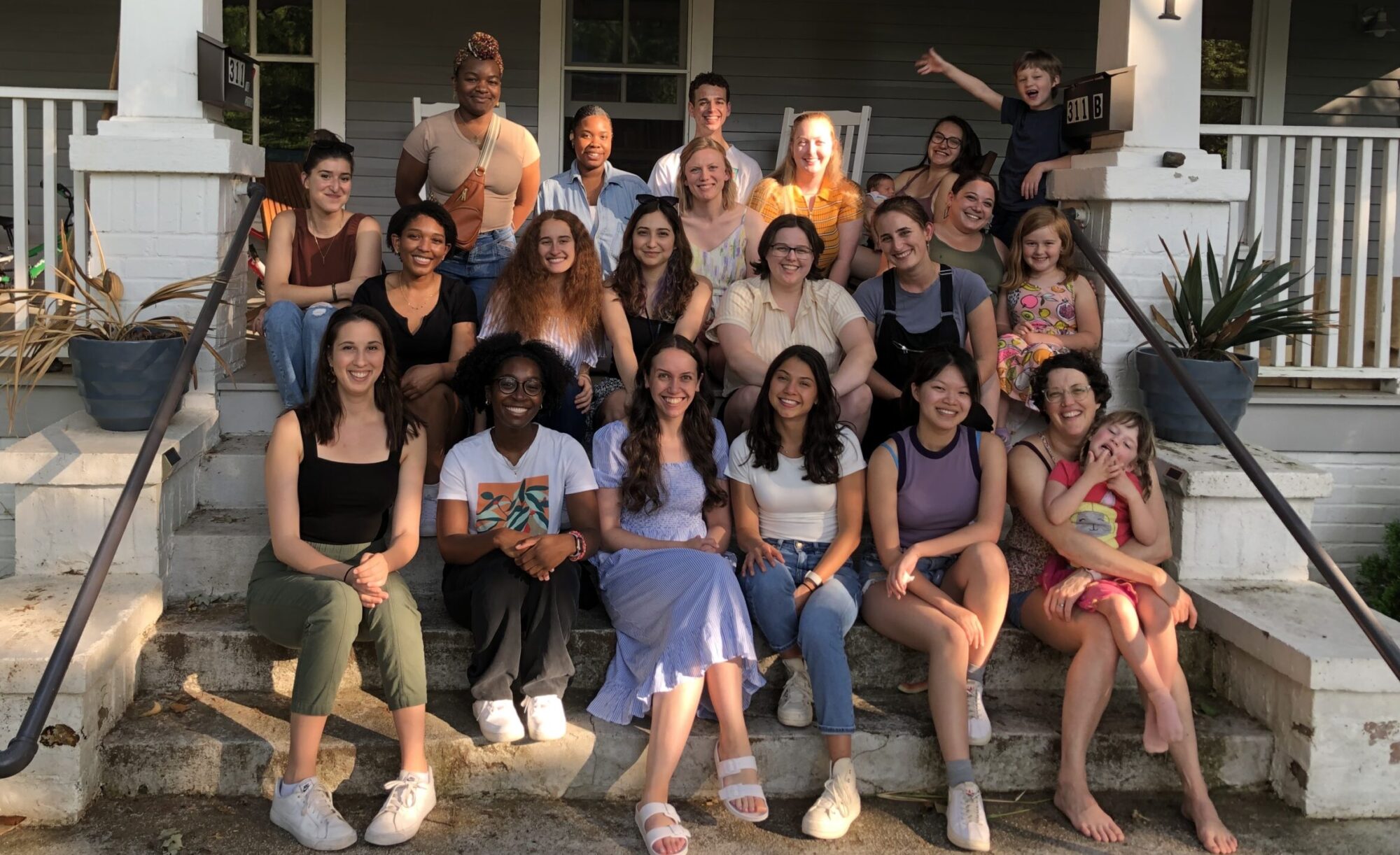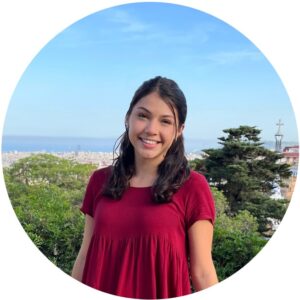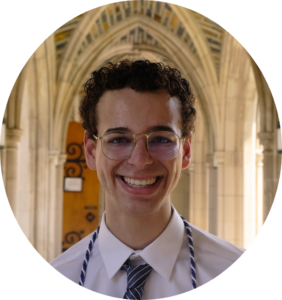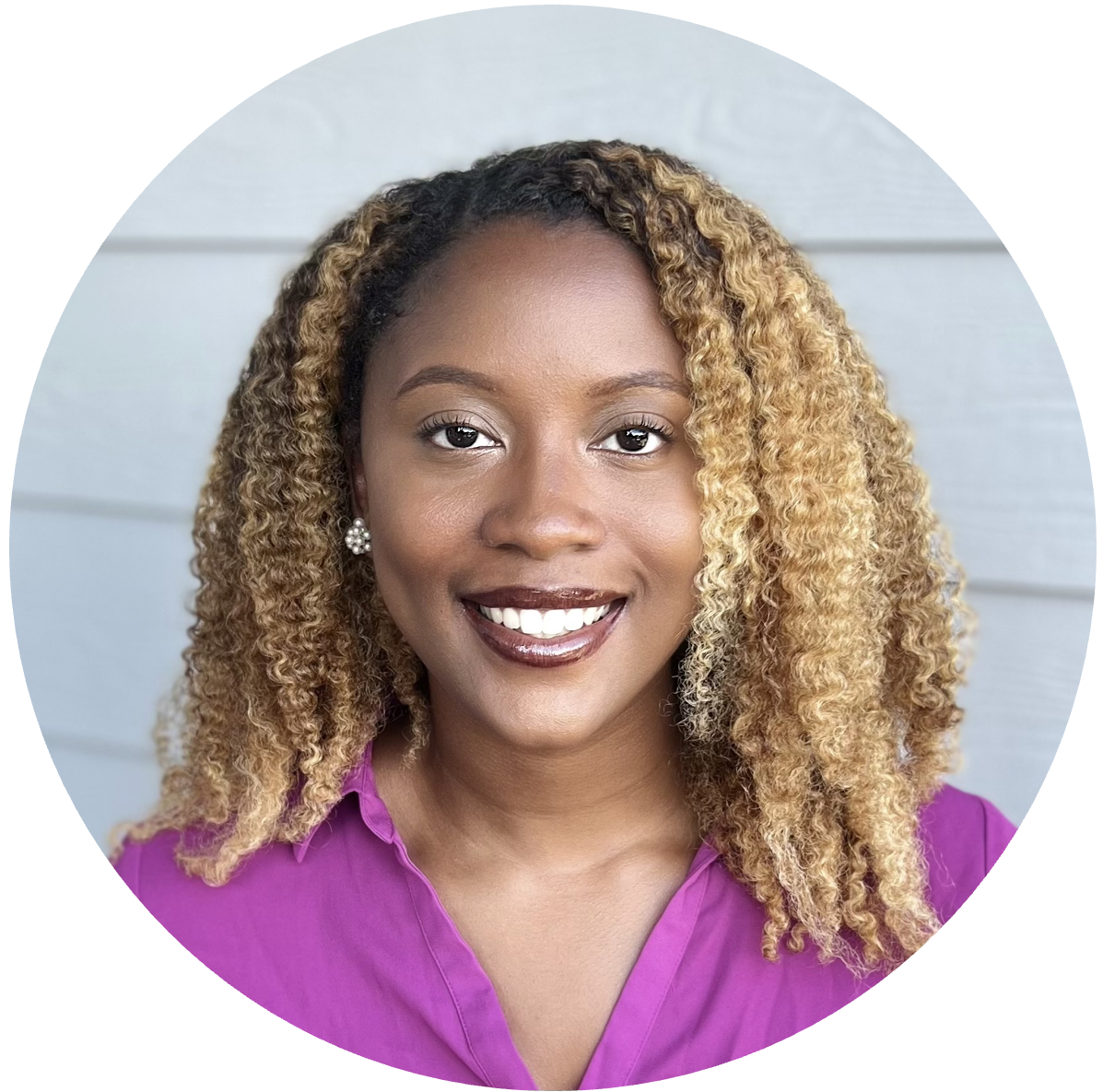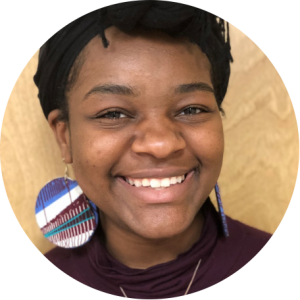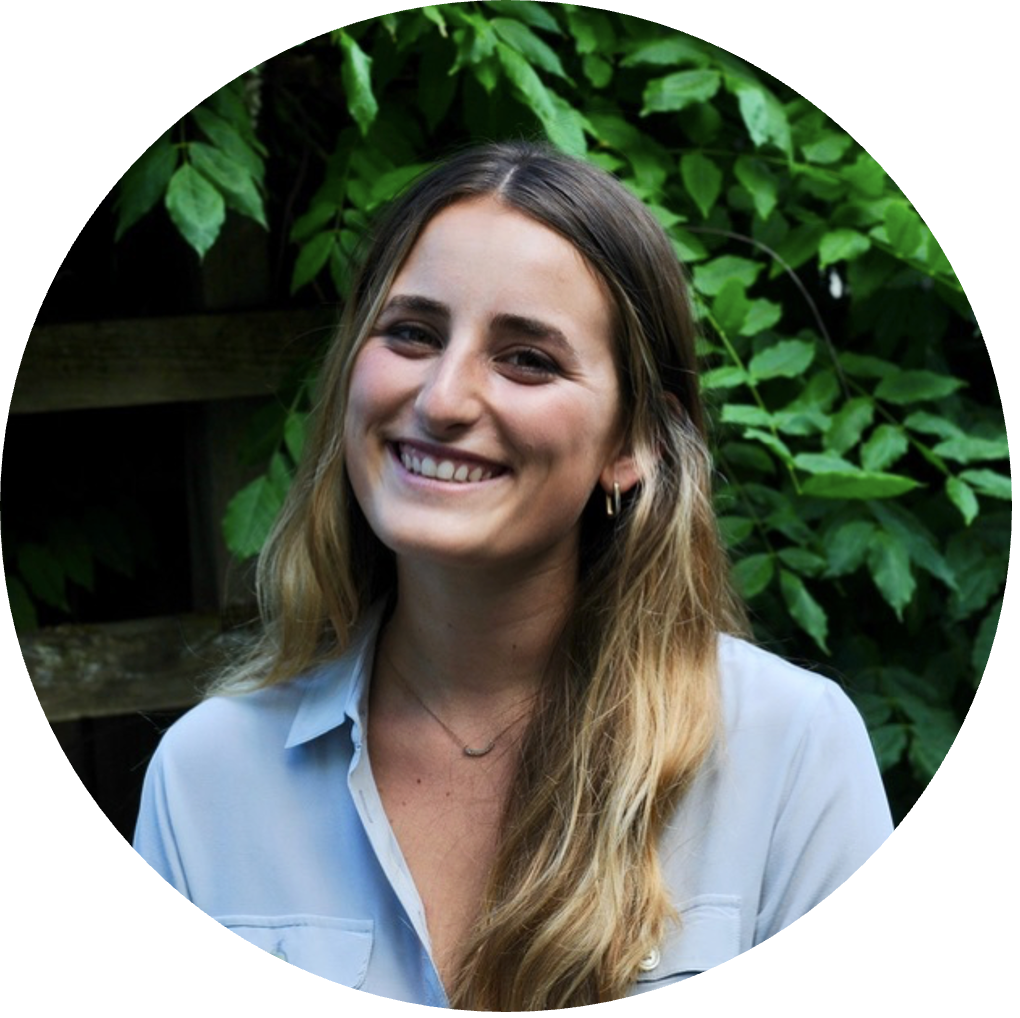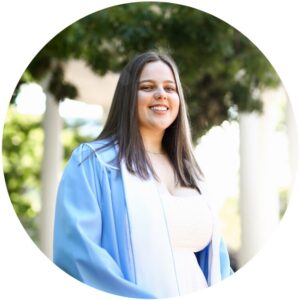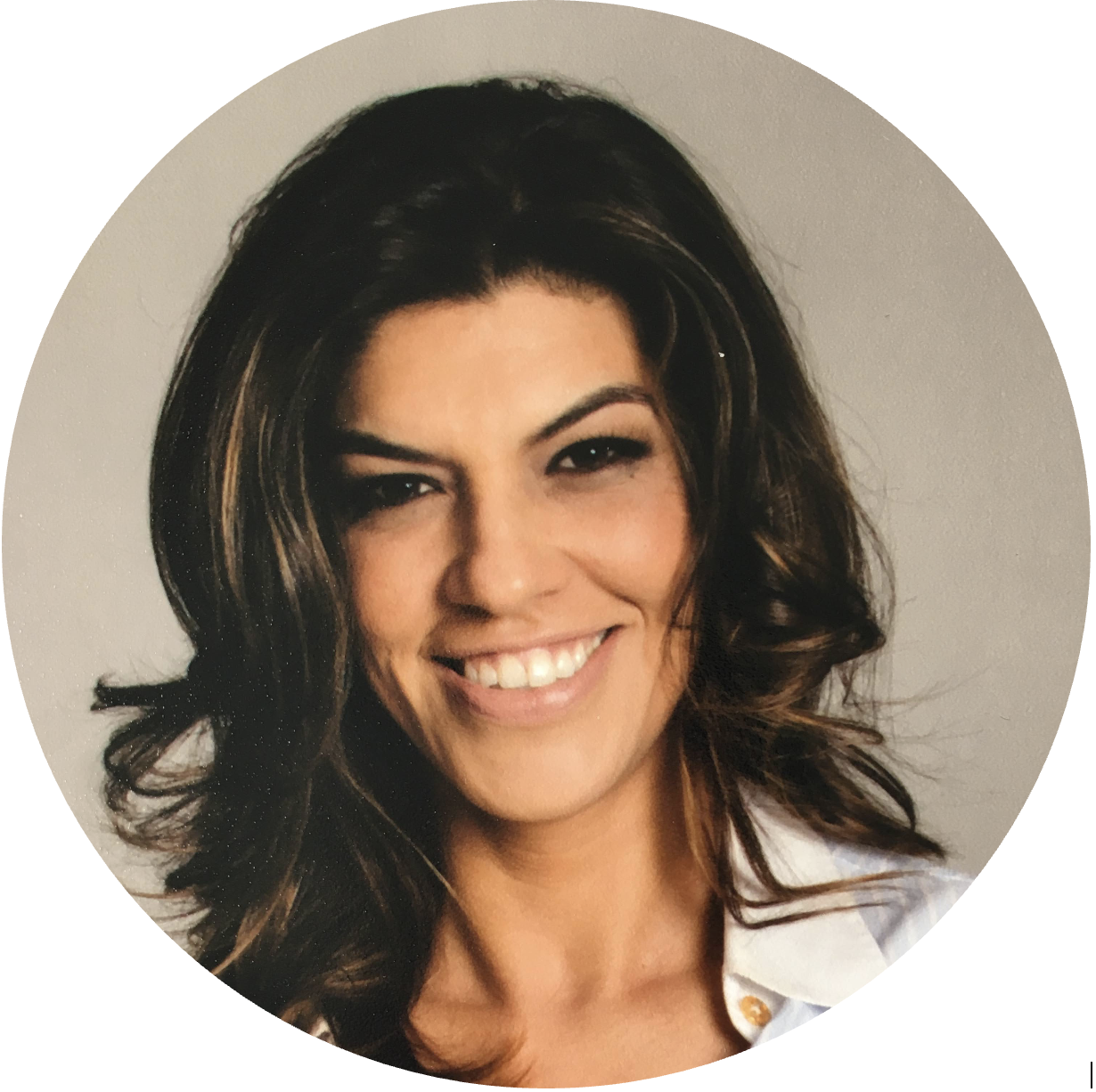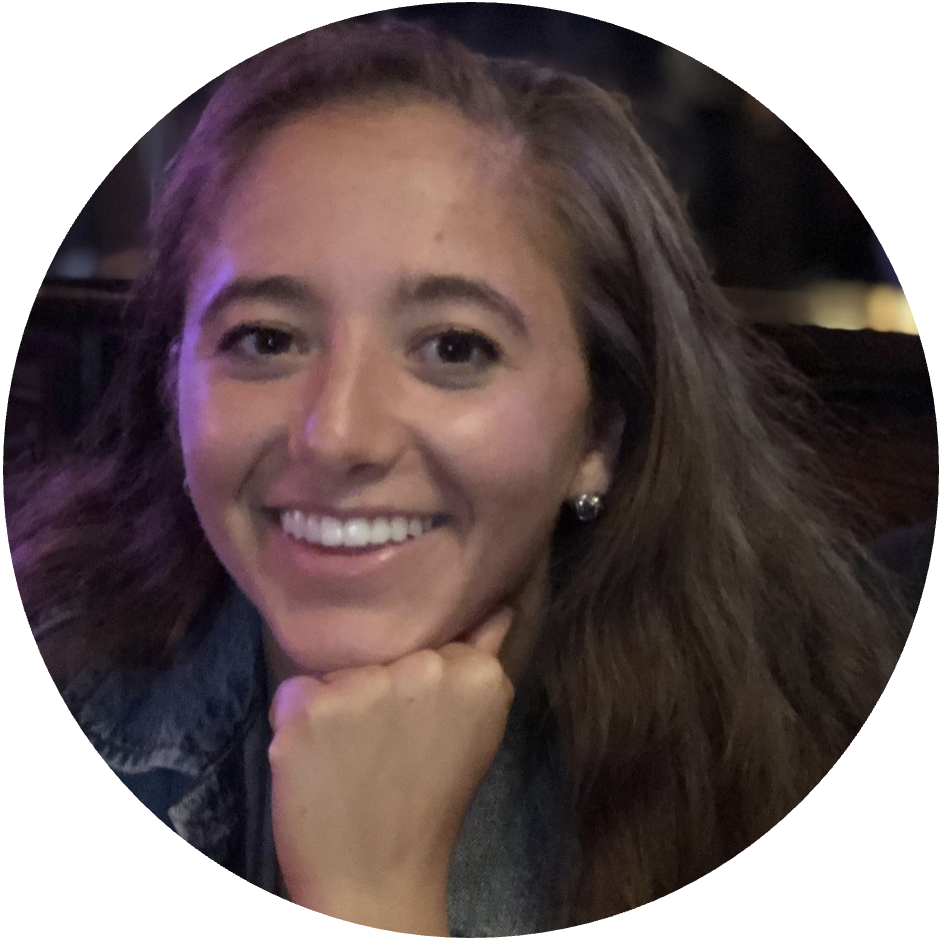Lab Manager:
Maria Phelps
maria67@live.unc.edu
Maria is the manager of the CIRCLE Lab and was previously a full-time research assistant on the WHALE Study. She graduated from UNC-Chapel Hill in May 2022, with a B.S. in Psychology and a minor in Biology. As an undergraduate, she worked on various studies in Dr. Sara Algoe’s Emotions and Social Interactions in Relationships (EASIR) Lab and she was a member of the Spring 2022 cohort of Karen M. Gil interns at UNC. She is currently pursuing the Graduate Certificate in Professional Communication and Managerial Skills through NC State University and hopes to use her experience as a lab manager to transition her career into Human Resources, consulting, or a related field. In her free time, Maria enjoys cooking meals with her roommates, exercising, and listening to NPR’s Hidden Brain podcast.
Maria has completed HAVEN (Helping Advocates for Ending Violence Now) training and LGBTQIA+ Safe Zone training. She has also received certification as a Mental Health First Aider from The University of North Carolina at Chapel Hill. (Pronouns: she/her/hers)
Research Assistants:
Connor Haughey
chaughey@unc.edu
Connor is a full-time research assistant on the STTAR Study. He graduated from Duke University in 2023 with a B.S. in Psychology with Distinction, a minor in Philosophy, and a certificate in Documentary Studies. During his time at Duke, he worked under the mentorship of Dr. Kimberly Carpenter and completed an honors thesis on sensory over-responsivity and brain structural alterations during childhood as risk factors for adolescent anxiety. His research interests include integrating measures of risk during early life with brain development trajectories to better understand psychopathology during adolescence and young adulthood. Connor ultimately hopes to pursue a Ph.D. in Clinical Psychology. Outside of research, Connor enjoys 35mm film photography, practicing yoga, and spending time outdoors. (Pronouns: any; general practice: he/they)
Jialin Lu
jialinlu@email.unc.edu
Jialin Lu is a full-time research assistant on the STTAR study. Jialin graduated from Cornell University in 2022 with a B.S. in Human Development. As an undergraduate, Jialin was a Research Assistant in the Cornell Child Witness & Cognition Lab, the Cornell Human Intelligence Lab, and the Cornell Affect & Cognition Lab. Learning from the labs she worked in, Jialin hopes to investigate her research and develop intervention curriculums by integrating various methodologies. Jialin is interested in using interdisciplinary (MRI, survey, clinical interview) methods to understand how adverse life experiences impact one’s resilience development and development of various psychopathologies. In the future, Jialin plans to pursue a PhD in Clinical Psychology. In her free time, she enjoys cooking, doing arts and crafts (puppetry), and exploring good cafes and local museums. (Pronouns: she/her/hers)
Lauren Butler
lbutl001@unc.edu
Lauren is a full-time research assistant on the STTAR Study. She graduated from Old Dominion University in Norfolk, Virginia with a B.S. in Psychology and a minor in Human Services. Lauren was previously a fellow of the NIH-funded MARC U*Star program which granted her a profuse amount of research experiences in sexual minorities and health behaviors (i.e., eating disorders and body image), and early life adversity in racial minority populations. Her research interest broadly encompasses the developmental outcomes (i.e., emotional/behavioral regulation) in children exposed to intimate partner violence, community violence, problematic parenting, and child maltreatment. In the future, she aspires to continue her education with a Ph.D. in Clinical Psychology. Outside of research, she enjoys binge-watching Netflix, exploring new restaurants, and spending quality time with family and friends.
Lauren successfully completed trainings in Identifying and Navigating Microaggression in the Workplace and Listen, Affirm, Respond, and Ask Questions (LARA) Method, conducted by the Office of Diversity & Inclusion at the University of North Carolina at Chapel Hill. Additionally, she received her certification as a Mental Health First Aider and completed LGBTQIA+ Safe Zone Training at UNC Chapel Hill. Pronouns: she/her/hers)
Maresa Taté
Maresa is a full-time research assistant between the STTAR and BEE studies. She graduated from the College of Wooster with a B.A. in Cognitive and Behavioral Neuroscience in May of 2021. As an undergraduate, she was selected as a CDC Undergraduate Public Health scholar where she worked as a clinical research intern at Johns Hopkins and Kennedy Krieger Medical Institutes’ Sickle Cell Neurodevelopmental Clinic. Maresa completed their undergraduate thesis investigating the role of anti-Blackness in the processing of hair during facial identification between Black and non-Black individuals. Their study analyzed hair alterations’ effects on facial recognition accuracy between own-race and other-race faces, with the use of eye-tracking technology. Maresa is particularly interested in working with historically exploited and excluded populations to increase health and wellbeing outcomes. She plans to become a physician-scientist studying the impacts of intergenerational trauma on the body and brain, with a specialty in Pediatrics – Child Abuse and Maltreatment. She hopes to continue her work with marginalized communities through community-engaged research to inform her clinical and advocacy work. Outside of research, Maresa enjoys listening to music, Sudoku, writing poetry, and napping.
Maresa has completed Standard Safe Zone Training and Safe Zone Gender Identity & Gender Expression Training at The College of Wooster. They also received certification as a Mental Health First Aider from The University of North Carolina at Chapel Hill.
(Pronouns: she/they)
Sarah Lempres
lempresm@email.unc.edu
Sarah Lempres is a research assistant on the STTAR Study. She graduated from Vanderbilt University in 2021 with a B.S. in Cognitive Studies and Child Development, and with a minor in Medicine, Health, and Society. While attending Vanderbilt, she worked as a research assistant at the Stress and Early Adversity Lab under Dr. Kathryn L. Humphreys, where she wrote an honors thesis examining parents’ emotional and behavioral responses to the emotional expressions of their preschool-aged children. Her research interests include examining developmental trajectories linking experiences in early life to later emotion functioning and neural development. She hopes to pursue a Ph.D. in Clinical Psychology. Outside of research, she enjoys yoga, painting, and going on long walks with her dog. (Pronouns: she/her/hers)
Sneha Boda
sneboda@unc.edu
Sneha Boda is a full-time Research Assistant on the WHALE study. She graduated from Drexel University with a B.S. in Psychology with a minor in Neuroscience, and certificate in Health and Medical Humanities. During her undergraduate career at Drexel, Sneha worked as a full-time research assistant at the Center for Weight, Eating, and Lifestyle Sciences under Dr. Adrienne Juarascio. Additionally, she completed a senior thesis investigating the co-morbid effects of subclinical anxiety and PTSD on attentional deficits in adults under the mentorship of Dr. Evangelia Chrysikou. She has specific interests in the areas of neurodevelopment research and developmental disabilities. Sneha’s goal is to pursue a Ph.D. in Clinical Psychology and work with children. Apart from research, Sneha enjoys singing, cooking elaborate meals for friends, and relaxing by watching reality TV shows and crime documentaries! (Pronouns: she/her/hers)
Zoe Priddy
zpriddy@live.unc.edu
Zoe is a full-time Research Assistant on the WHALE Study. She graduated from UNC Chapel Hill with a BS in Biology and a BA in Psychology with a minor in Spanish for the Health Professions. Since sophomore year Zoe was an undergraduate research assistant in the CIRCLE Lab, primarily assisting in the YES Study and then the WHALE Study. Zoe is interested in childhood development and how external factors influence this including maltreatment, socioeconomic status, and identity. After working for a couple years, she plans to attend medical school to become a pediatrician. Along the way, Zoe wants to refine her research interests and increase diversity and inclusion in science. In her free time, Zoe enjoys cooking, going to concerts, traveling, and weightlifting. (Pronouns: she/her/hers)
Scientific Programmer:
Will Asciutto
wasciutto@unc.edu
Will is a full-time Scientific Programmer and member of the Human Neuroimaging Group. He develops image processing software and assists with its training and adoption in the lab, in addition to serving as a general programming resource. Will graduated from Appalachian State University in 2016 with a BS in Computer Science. He started his career in industry, where he developed Python and R-based big data pipelines in both Azure and AWS for the enablement of advanced commercial analytics. He also developed Java-based RESTful APIs and both managed and taught a data engineering course for clients. Outside of programming, Will enjoys getting outdoors for hiking, camping, kayaking, and biking.
Part-Time Research Assistants:
Daniella Bastos
danibas@unc.edu
Before coming to the US, Daniella worked as a Licensed Psychologist from 1998 to 2014 in Curitiba, Brazil . She worked in diverse settings, where she conducted psychological evaluations, constructed treatment plans, engaged in psychotherapy with children and adults, and provided psycho-education for patients, parents and professionals at multi-disciplinary teams. In 2016 she earned a Masters degree in Counseling Psychology from Chatham University in Pittsburgh, Pennsylvania. During that time she conducted research exploring how mindfulness techniques such Yoga and Meditation might enhance self-regulation processes. After graduation, Daniella continued to explore and teach yoga and meditation as tools for mental health and promotes diversity and inclusion of those practices. Regardless of age, social and cultural background, Daniella is enthusiastic about helping individuals and families improve their health, relationships, and quality of life. She considers the CIRCLE Lab an amazing opportunity to engage in such work as she seeks to evolve as a scientist and as a person.
Stephanie Sirhal
ssirhal@unc.edu
Stephanie Sirhal is a United States Army veteran interested in pursuing a Doctorate in Clinical Psychology. She completed her Bachelors and Masters in Architecture at Tulane University, and commissioned into the Army as a Field Artillery Officer in 2018. Stephanie deployed to the Middle East in 2020, during which she became interested in how developmental trauma affected her Soldiers. While transitioning out of the military, she pursued that interest as a research assistant within UNC Chapel Hill’s Gfeller Center and Oklahoma State University’s Child Adaptation and Maternal Psychopathology Laboratory (CAMP-Lab). Stephanie intends to study interventions that can successfully reduce the impact of childhood neglect and abuse within military families. Outside of work, Stephanie loves any type of food, cooking, hiking, and traveling.
